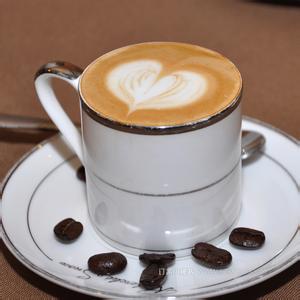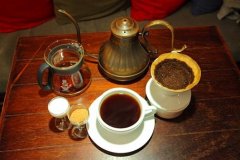Civet Coffee-Indonesia's National Treasure Coffee
Indonesia had close cultural and trade contacts with us as early as thousands of years ago, and Zheng he's voyages in the Ming Dynasty had a great impact on the local economic and social development. The Indonesian Pavilion of the Expo unveiled at the Expo with a series of natural and environmentally friendly materials such as wood and bamboo, showing beautiful tropical scenery and cultural features, making visitors linger.

Indonesia is a country that pays attention to gourmet food. This World Expo, the Indonesian Pavilion specially brought national treasure food-Kopi Luwak, Kopi Luwak is a unique variety of coffee in Indonesia, it is said that the price per gram is more expensive than gold.
Kopi Luwak's "English" name is Kopi Luwak, "Kopi" is Indonesian Javanese "coffee", and "Luwak" is a wild civet that lives in the Indonesian archipelago. As its name suggests, Kopi Luwak is associated with the Indonesian wild civet, a unique wild vegetarian animal that is wrapped in coffee berries and attacks the most mature coffee beans.
Because the civets' intestines and stomach can only digest the part of the flesh, while the hard kernels (that is, coffee beans) cannot be digested, they are excreted along with the civets' feces. Due to the acid corrosion of the intestinal tract, the rugged surface of the general coffee bean becomes obviously smooth, and the "biological energy" replaces the traditional processing technology, reducing the acid and bitterness in the original bean, so it is particularly mellow. These civet "special" coffee beans are fine, and it is found that the coffee brewed from these beans tastes strange, hence the name "Kopi Luwak".
Unfortunately, wild civets in Indonesia were heavily hunted in the past, resulting in a sharp decline in the number of wild civets and a small number of civets. The natural production of Kopi Luwak is no longer high. At present, Indonesia produces only about 1000 pounds of Kopi Luwak a year. And in the international market, the price of Kopi Luwak is always about 1000 US dollars per kilogram, so it is a veritable luxury.
Important Notice :
前街咖啡 FrontStreet Coffee has moved to new addredd:
FrontStreet Coffee Address: 315,Donghua East Road,GuangZhou
Tel:020 38364473
- Prev

Coffee short knowledge chapter
The efficacy of coffee 1. Refreshing and refreshing. Caffeine has a spicy flavor, which can easily pass through the brain-blood barrier, stimulate the central sutra, promote brain activity, make the mind more clear, lively and sensitive, think well, concentrate, and improve work efficiency; it can stimulate the brain skin to promote sensation, judgment, memory and emotional activity. two。 Strong muscles and bones, waist and knees. Caffeine can make muscles
- Next

The act of making coffee will affect the taste.
What's the barista like? It's not good to drink, but what is the beauty barista contest? Zou Lei, vice president of the Beijing Coffee Industry Association, said that according to the requirements of the competition, each contestant is required to make three kinds of espresso within 15 minutes, including 12 cups of Espresso (espresso), cappuccino and creative coffee for seven judges, including four sensory judges and two technical reviews.
Related
- Beginners will see the "Coffee pull flower" guide!
- What is the difference between ice blog purified milk and ordinary milk coffee?
- Why is the Philippines the largest producer of crops in Liberia?
- For coffee extraction, should the fine powder be retained?
- How does extracted espresso fill pressed powder? How much strength does it take to press the powder?
- How to make jasmine cold extract coffee? Is the jasmine + latte good?
- Will this little toy really make the coffee taste better? How does Lily Drip affect coffee extraction?
- Will the action of slapping the filter cup also affect coffee extraction?
- What's the difference between powder-to-water ratio and powder-to-liquid ratio?
- What is the Ethiopian local species? What does it have to do with Heirloom native species?

